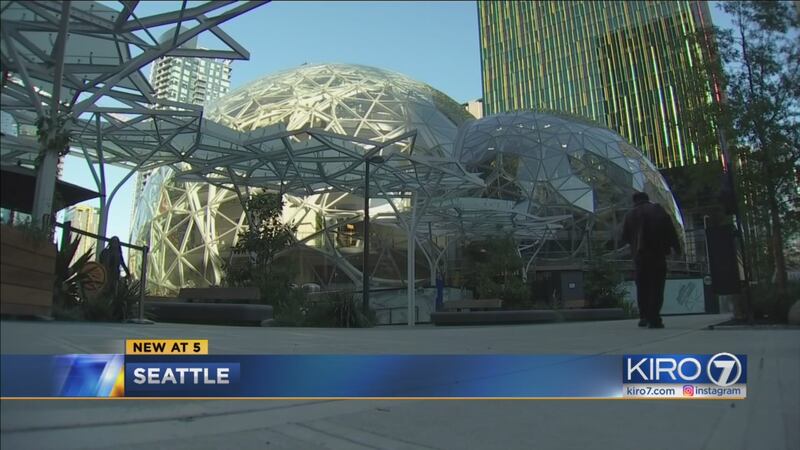SEATTLE — Amazon has hit the pause button on projects affecting 7,000 jobs. An economic study commissioned by the Seattle Metropolitan Chamber of Commerce says a permanent halt will cost the city $3.5 billion in economic impact.
"All those lost wages, in terms for paying of houses, going to restaurants, going grocery shopping -- those impacts all filtered down into where there's just less money in the economy," said economist Morgan, Shook of EconNorthwest.
Scroll down to continue reading
More news from KIRO 7
- Police: Pit bull attacks Jehovah's Witnesses at front door
- Seattle homeless and the head tax proposal: A timeline of the city's response
- Pierce County family: Bullies at school drove our 14-year-old to suicide
- Police arrest woman after allegations of racist tirade in McDonalds
- South Sound woman billed nearly $8,000 for late $300 HOA payment
That's worrisome at Honda and Toyota of Seattle, where car sales generate $150 million in revenue a year, much more than the $20 million in revenue that triggers the head tax.
"We've calculated it out and it's $113,500 for the first year, with 227 employees. So, it's approximately $9,500 in overhead that we weren't anticipating," said chief financial officer Stuart Lund of Honda & Toyota of Seattle.
That's why more than 100 big-company CEOs have written to the City Council opposing the head tax. In a letter posted on the website Medium, they wrote:
"We oppose this approach, because of the message it sends to every business: If you create too many jobs in Seattle, you will be punished.
"We ask the City Council to set aside the misguided 'head tax,' and to engage us in more dialogue."
The letter was signed by the CEOs of Alaska Air, Expedia, Real Networks and Tableau, among others.
Lund said the added expense will have him looking at employee head count. "It's equivalent to two to two and a half employees just added on to our overhead."
While the head tax money would go to fight homelessness, Shook says it may have the opposite effect on those at the low end of the job scale.
"There will be less of those jobs available to them and put some of those households at increased risk of economic insecurity," Shook said.
But supporters of the head tax aren't persuaded.
"I really don't buy that argument. Again, this is a modest tax. We're talking about the 3 percent largest businesses in the city, and this money is going to go into building new low-income housing," said Katie Wilson, of the Seattle Transit Riders Union.
The City Council has an all-day meeting on Wednesday to begin discussing final plans for the head tax proposal.
Cox Media Group








